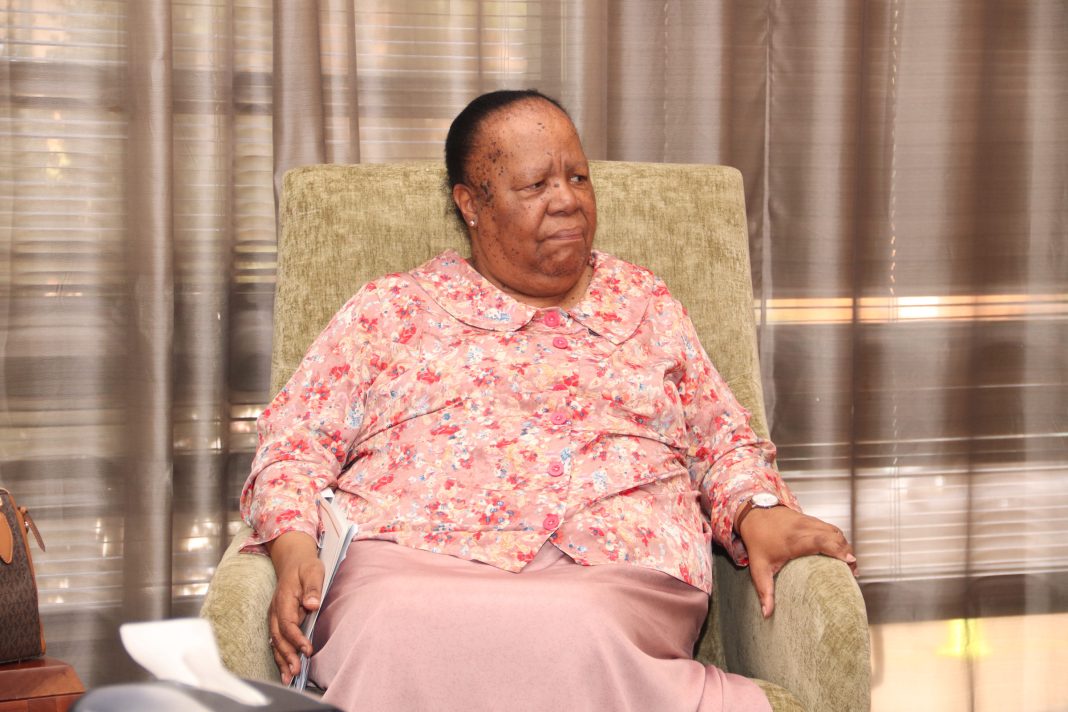By Edwin Naidu
The 2024 Science Forum concluded with a resounding celebration of South Africa’s science and technology innovation achievements.
“One of the best decisions made by newly democratic South Africa in 1994 was to create a department dedicated to science, technology, arts and culture. As this democracy matured, an even more insightful decision was adopted – a fully-fledged Department of Science and Technology,” Dr Naledi Pandor, who has a keen interest in science, recently said.
She said it was interesting to examine South Africa’s beginnings as a democracy to understand its progress and failings.
In 1994, the first minister of this portfolio, Ben Ngubane, announced the establishment of a national archival system aligned with the democratic principles of our new Constitution.
In the second Parliament, Ngubane referred to the need to train oral historians, work to reflect our nation’s diversity in archival records, and use archives to reflect the history of all our people. He also referred to the role technology would play in broadening access to archives.
In the third Parliament from 2004 to 2009, the archive focus expanded significantly to include the Memory of the World programme, Freedom Park, the Lilliesleaf Project, and the creation of the Oral History Association of South Africa. This period also marked the affirmation of seminal archives that would be a focus of the department.
“This recollection is a useful reminder that while the 1994 government began a focus on a range of scientific disciplines, they also dedicated attention to the importance of historical record and its role in advancing science from rock painting to written record, to transcript, to wireless and digital,” she said.
Pandor noted that the development of science, technology and innovation in South Africa has marked steady advances in palaeontology, astronomy, biotechnology, laser science and artificial intelligence.
“South Africa’s science, technology, and innovation system has made commendable pro0gress in the 30 years of democracy alongside immensely troubling and stubborn challenges. In the Kaplan report of 1996, it was indicated that while South Africa had considerable scientific and technological capabilities, the new democratic government inherited a system that harboured considerable resistance to change and would operate under significant economic constraints,” she added.
The report offered policy advice to the new democratic government, suggesting that it works to develop a science and technology system that would simultaneously support the emergence of an internationally competitive business sector and the enhanced provision of infrastructure such as housing, clean water, and domestic electricity.
During the 1995-96 financial year, she said the budget for the department was around R2,8 billion
“The budget has more than doubled in the 30 years but has not reached nor exceeded the target of at least 1% of GDP devoted to science and innovation.”
Despite the inadequate funding, Pandor said South Africa has marked important areas of progress. “
This is largely due to excellent research universities, science agencies, skilled scientists and a keen and bright youthful science population.”
She added that critical capacity has been achieved in astronomy capabilities. The Square Kilometre Array project was the best-known example, alongside the Meerkat, the SALT telescope initiative and the Satellite Centre.
Furthermore, considerable data computing skills, engineering feats and exciting imagery of dark matter are all outcomes of this area of science and innovation.
The SKA was iconic for these reasons, as was the Africa collaboration and the global partnerships that created the best science.
“Our challenges remain a worrying decline in resources and a growing wariness among young researchers about the viability of pursuing a full-time research career. Sadly, the sector is also not immune to the impact of the current toxic geopolitical environment. South Africa’s support for the struggle for sovereignty has resulted in some key research initiatives that rely on international funding, facing the threat of funds being withdrawn,” she said.
“This is reportedly happening to universities that have decided not to pursue links with institutions in Israel that have links to the military actions in Palestine. The department needs to focus on the likely impact of such funds withdrawal on institutions and researchers and support them in identifying alternative resources.”
One of the most critical areas of success recently, Pandor said, was the work done by South African scientists in identifying a Covid-19 virus variant (Omicron), and thus alerting the globe early to this threat.
“That discovery placed South African researchers and their collaborators at the apex of science excellence. This is the kind of advance our government must continue supporting and investing in.”
Science, Technology and Innovation Minister Blade Nzimade has said that going forward, he believes that one of the areas that must get critical attention is the funding of research in Africa and the development of a sovereign African research agenda.
Innovation in the country led by the department was now aimed at supporting the country’s apex priorities of inclusive growth and job creation, reducing poverty and tackling the high cost of living, and building a capable, ethical and developmental state.
INSIDE EDUCATION







